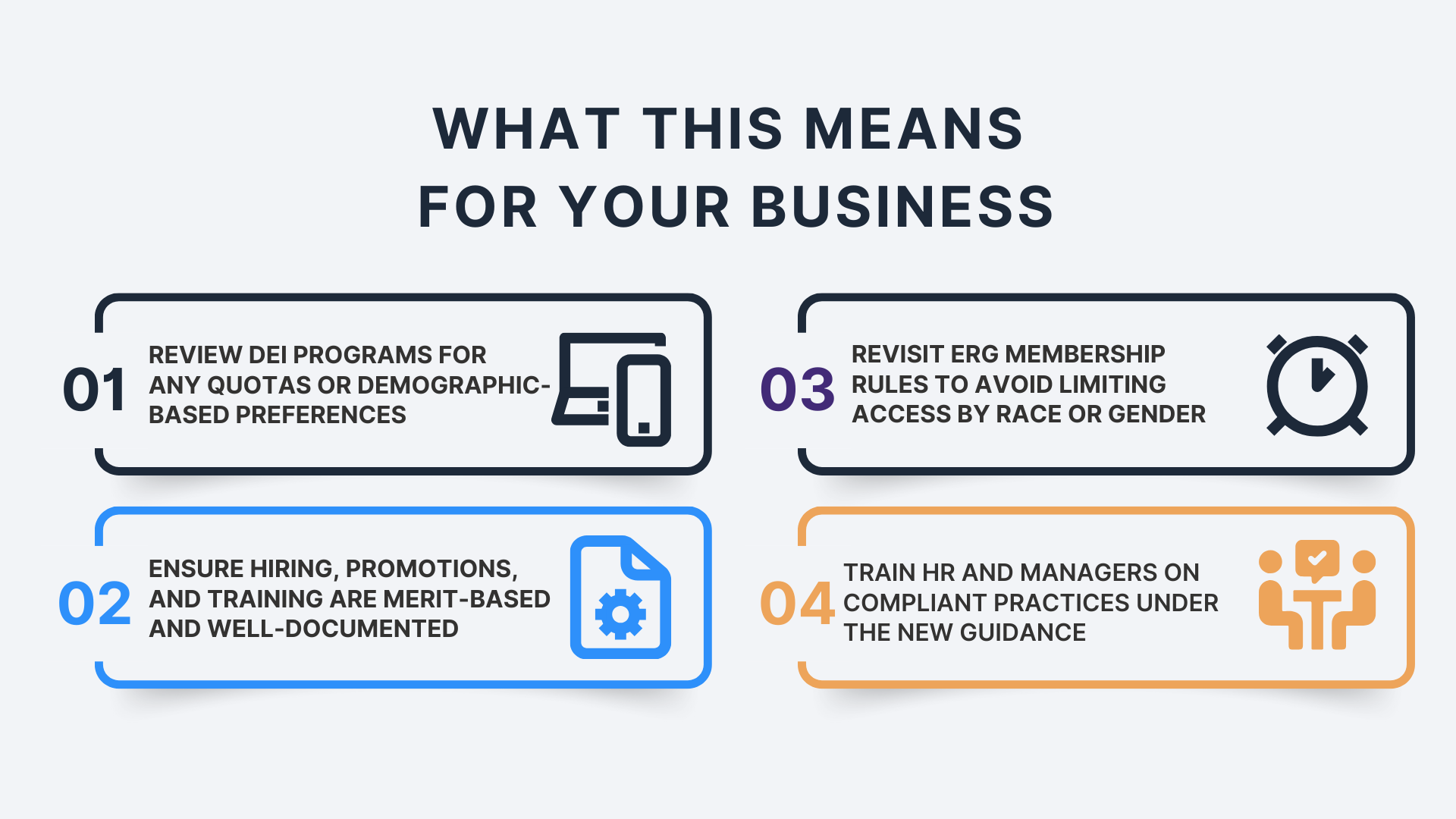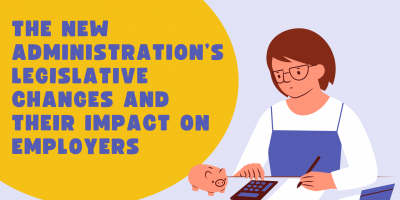
Teladoc Health Buys Catapult Health, UnitedHealth $3.3B Acquisition Update & More Industry News
February continues the trend of major industry shifts driven by high-impact acquisitions, strategic collaborations, and exciting new products.

The discussions around workplace diversity, equity, and inclusion (DEI) have changed dramatically under the second Trump administration.
With executive orders targeting so-called “illegal DEI practices” and leadership changes at the Equal Employment Opportunity Commission (EEOC), many employers have been left wondering what’s still legal – and what isn’t.
The EEOC has released new guidance clarifying which diversity, equity, and inclusion (DEI) programs may violate federal law.
Since taking office in January 2025, President Trump has:
Federal courts have begun weighing in on the legality of these actions, with a recent Fourth Circuit ruling allowing enforcement of the anti-DEI orders to move forward.
However, the executive orders did not clarify what exactly constitutes “illegal DEI” in the workplace.
The EEOC’s latest guidance removes some of the guesswork away.
On March 19, 2025, the EEOC released two technical assistance documents aimed at defining “DEI-related discrimination” in the workplace.
The first document, a joint one-page release with the Department of Justice, urges employees to file charges if they believe DEI programs have discriminated against them.
The second – a detailed Q&A from the EEOC – explains how Title VII applies to DEI initiatives and explains that certain practices, like quotas or preferences based on race or sex, may violate federal law.
Key takeaways from the documents include:
Anti-discrimination protections include employees, applicants, interns, and participants in training programs.
The guidance identifies several DEI activities that may violate Title VII, including the use of demographic quotas, “balancing” systems, or employment decisions influenced by protected characteristics.
It also states that while Employee Resource Groups (ERGs) are not necessarily unlawful, limiting membership based on race, sex, or other protected traits could trigger violations.
The guidance also warns against penalizing employees who object to DEI initiatives they believe are discriminatory.
What This Means for Your Business:
It’s important that employers stay informed on regulatory updates and should prepare for potential shifts in future regulations.
For example, the Supreme Court’s upcoming ruling on reverse discrimination claims could once again affect compliance strategies.

Perhaps the most interesting recent enforcement development is the EEOC’s decision to investigate DEI practices at 20 major law firms.
On March 17, just days before the new guidance went public, Acting Chair Lucas sent letters to 20 major law firms requesting detailed information about their DEI-related employment practices.
The law firms that received letters include many of the nation’s largest and most influential firms (Kirkland & Ellis, Latham & Watkins, Goodwin Procter, Morgan Lewis, A&O Shearman, Perkins Coie, WilmerHale, and others).
Each letter contained over 100 requests for information and documents related to the firm’s DEI policies.
Lucas’s approach has raised many legal questions about the EEOC’s authority to demand information in this manner.
Typically, a Title VII investigation begins with a charge of discrimination filed by an aggrieved individual or initiated by a Commissioner.
As a result, the move has triggered immediate pushback.
Just a day later, several former EEOC leaders sent a joint letter challenging Lucas’s authority to issue such demands and urging her to rescind them.
The state of EEOC leadership in early 2025 is anything but typical.
President Trump’s sudden removal of Democratic Commissioners Charlotte Burrows and Jocelyn Samuels has left the EEOC without a quorum for over two months.
As a result, major decisions have been stalled until new appointments are confirmed.
Typically, the EEOC is comprised of five presidentially appointed commissioners (including a chair and vice-chair), confirmed by the Senate, who serve staggered five-year terms.
The agency currently operates with only two members: recently appointed Acting Chair Andrea Lucas and Commissioner Kotagal.
Title VII requires at least three commissioners for the EEOC to reach a quorum.
Without it, the agency is unable to start formal rulemaking or update, withdraw, or create official guidance, effectively leaving existing EEOC policies frozen.
It should be noted that the EEOC released the above-mentioned DEI guidance without a quorum because the two documents are classified as technical assistance materials, not formal guidance or regulations.
What This Means for Your Business:
Ultimately, employers should monitor updates on quorum restoration and policy shifts.
Senior Content Writer at Shortlister
Browse our curated list of vendors to find the best solution for your needs.
Subscribe to our newsletter for the latest trends, expert tips, and workplace insights!

February continues the trend of major industry shifts driven by high-impact acquisitions, strategic collaborations, and exciting new products.

With growth at the forefront, March 2025 witnessed exciting developments across various industries—from high-profile acquisitions and IPOs to the launch of the latest cutting-edge hiring solution—setting the stage for an exciting year ahead.

What’s the most effective way to go from leads to prospects to paying customers?

What are the latest changes to workplace regulations under the new administration? From DEI rollbacks to labor board delays, here’s what employers need to know.
Used by most of the top employee benefits consultants in the US, Shortlister is where you can find, research and select HR and benefits vendors for your clients.
Shortlister helps you reach your ideal prospects. Claim your free account to control your message and receive employer, consultant and health plan leads.